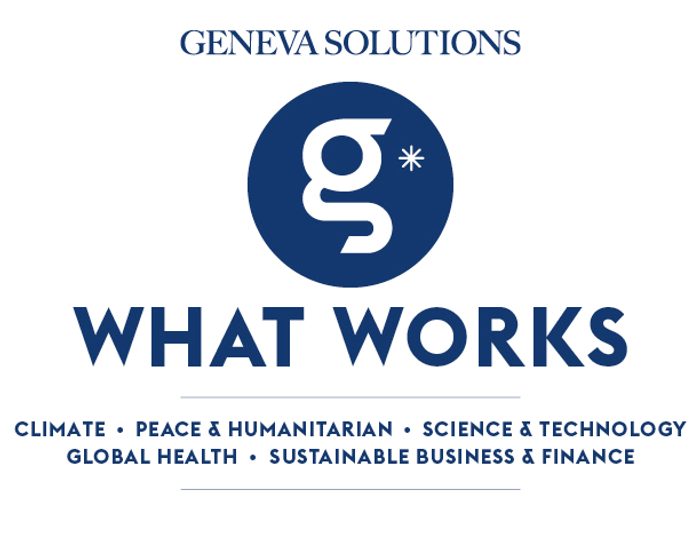Hello, this is Kasmira. As the United States steps back as a Human Rights Council member, its ambassador Michèle Taylor looks back on the three-year term, efforts to challenge China on human rights violations, and why, against a backdrop of conflict, the council’s response to Russia’s invasion of Ukraine was a diplomatic feat.
And, on the sidelines of the Red Cross conference, ICRC director general Pierre Krähenbül explains how humanitarians are adapting to new realities of an increasingly sophisticated and complex battlefield. |

|

United States permanent representative to the United Nations Human Rights Council, speaking at a press stakeout at the Palais des Nations, Geneva, 2023. (US Mission Geneva/Eric Bridiers)
|
|
US ambassador Michèle Taylor: Response to Russia invasion was ‘Human Rights Council at its best’
Three years have come and gone. After the United States regained a seat on the United Nations Human Rights Council in 2021, abandoned under former president Donald Trump, to much fanfare, the nation last month decided to bow out from seeking a second consecutive term, as a tightly contested presidential election race nears the finish line back home.
For Michèle Taylor, who arrived as US ambassador to the council on 24 February 2022, the day of Russia’s invasion of Ukraine, global crises over the last three years have challenged the 47-member council, its mechanisms, and human rights in ways that could not have been foreseen. She argues that the Geneva-based body nevertheless has proved itself well-equipped to take on issues such as addressing rights violations by Russia in Ukraine. The American diplomat and lifelong rights activist speaks to Geneva Solutions about key moments that shaped its three-year term.
Read the full story on Geneva Solutions
|
|
Here’s what else is happening
|
|
📌4 November | Cop29: can countries unlock new climate finance?
The climate conference next month comes in a year dominated by wars, elections and extreme weather events. As climate change slips down the global agenda, raising the risk of governments slowing their pace in reducing greenhouse emissions, countries have a crucial task at hand: agreeing on a new funding target to help vulnerable nations cope with climate impacts. Will wealthy nations put aside their own political agendas and agree to turn billions of dollars in financial commitments into trillions, as poorer nations have called for? What of Cop28's promise to transition away from fossil fuels?
Join us on Monday 4 November at 12:15 pm at Domaine du Château de Penthes, Geneva, for a discussion featuring experts and advocates who will share their insights and expectations for Cop29. Snacks and drinks will be served after.
Sign up to attend in person or virtually.
|
|
|
GS news is a new media project covering the world of international cooperation and development. Don’t hesitate to forward our newsletter!
Have a good day!
|

|
|
Avenue du Bouchet 2
1209 Genève
Suisse
|
|
|
|









